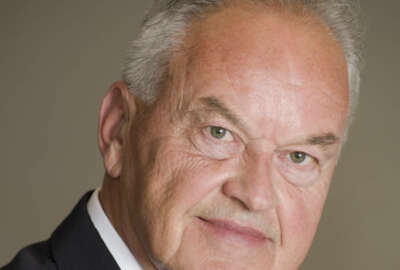
Would you tell your Secretary “no”?
These episodes tug on that tension line between political appointees and career people.
Today’s advice: No water-cooler nattering about Hillary Clinton and the e-mail server.
How or if former Secretary of State Hillary Clinton faces the music for what FBI Director James Comey called “extremely careless…handling of very sensitive, highly classified information”…well that’s now launched into the stratosphere of politics. And it’s not useful or beneficial for us ordinary proles to discuss the issues involved, especially in the high season for the Hatch Act.
But Comey’s statement, which the FBI posted on its web site, included this: “We also developed evidence that the security culture of the State Department in general, and with respect to use of unclassified e-mail systems in particular, was generally lacking in the kind of care for classified information found elsewhere in the government.”
Hey, that’s the career people.
In published reports, State Department flacks are vigorously disputing this finding. Spokesman John Kirby (the former Pentagon guy) told the Wall Street Journal, “We absolutely don’t share” Comey’s assessment. He cites the “longstanding” practice of “training and indoctrination that one goes through before you get employed here and the periodic reviews of the training and the sensitive information handling.”
This one will go on and on. I see a more practical question, outside the debates over whether Clinton or whether the State Department is good or bad at security. And that is this: When and how career people, who have the rules drilled into them from the outset, and who are the keepers of agency norms and standards, should risk embarrassment, banishment or retaliation by telling a political appointee: “No, you can’t do that.”
More Commentary
Politicals receive training in federal ethics. Secretaries tend to be drawn from people who have earlier government experience, or people so prominent and accomplished as to engender the expectation of their rectitude. So these awkward moments, in theory, shouldn’t happen. Even presidents have these rules. If a visiting potentate brings the president a diamond-encrusted sword as a gift, it’s quickly spirited away to storage as property of the United States.
It’s got to be intimidating to march into a sort of royal presence and state rules to power. At Homeland Security, it took the inspector general to get top brass, from Secretary Jeh Johnson on down, to stop something less egregious than what Comey said Clinton did at State. At DHS, they had been accessing personal web mail from government computers.
These episodes tug on that tension line between political appointees and career people. I think most politicals want to blend in and do the right thing while they are there. Sometimes you get the jerk who is arrogant toward the civil service.
Lots of associations and consultants are gearing up to offer their advice for the upcoming presidential transition. Politicians will do what politicians do. But someone should construct a course for career Senior Executives and tier two and three political appointees on how to approach the throne with these tough conversations.
Copyright © 2025 Federal News Network. All rights reserved. This website is not intended for users located within the European Economic Area.
Tom Temin is host of the Federal Drive and has been providing insight on federal technology and management issues for more than 30 years.
Follow @tteminWFED





